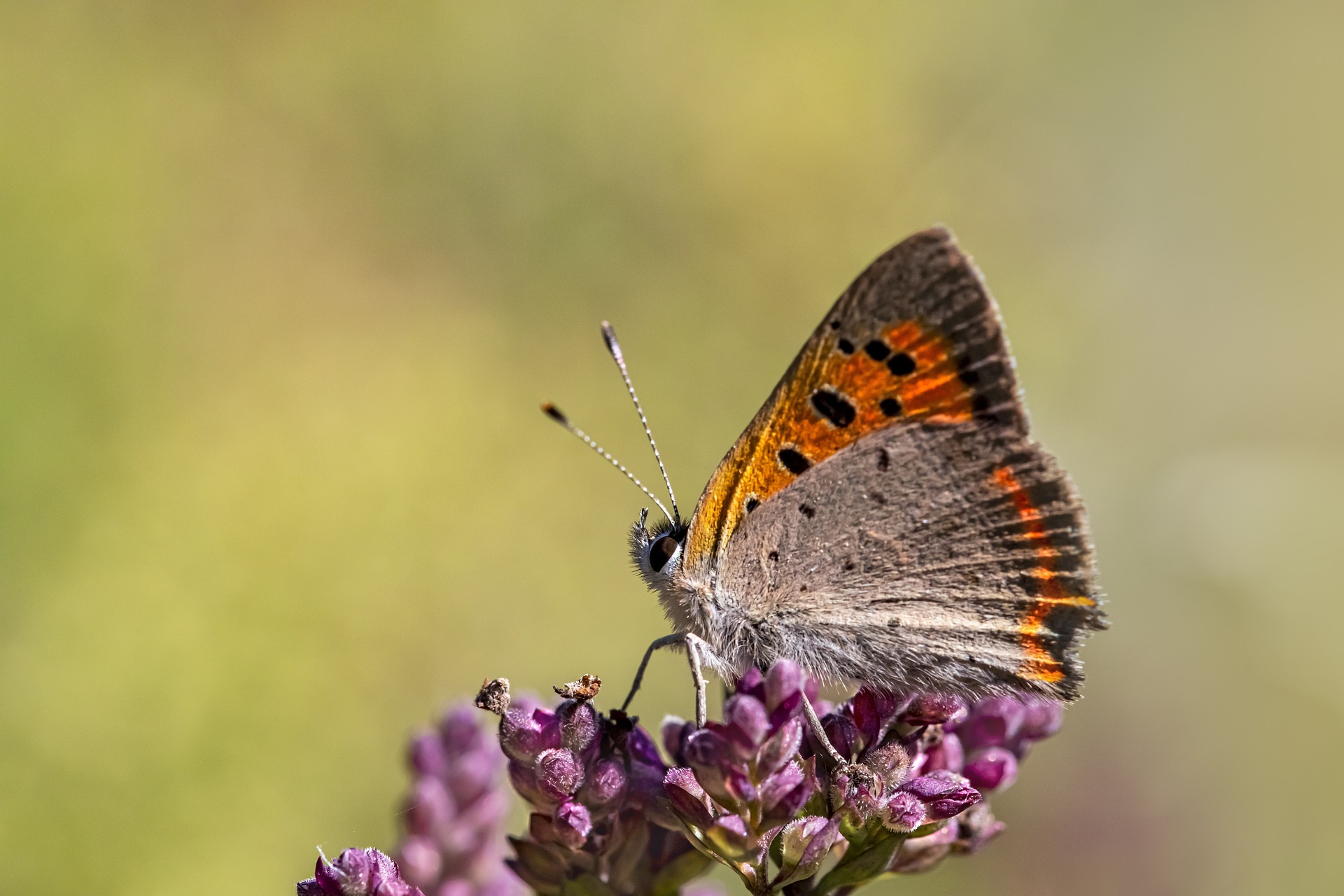🦋 Common Copper (Lycaena phlaeas)
The Common Copper is a small but fiery butterfly known for its bright orange wings and confident behavior. Despite its size, it’s a bold and energetic flyer, often defending its territory fiercely. Found across a wide range of habitats, it adds a spark of color to meadows, heaths, and gardens.
🔍 Identification
- Wingspan: 22–35 mm
- Upperwings:
- Bright orange with dark brown borders
- Forewings have small black spots
- Hindwings:
- Brown with an orange border
- Underside:
- Pale brown hindwings with dark spots
- Orange forewings with fainter markings
Males and females are similar, but females may be slightly larger and more colorful.
🌍 Distribution & Habitat
- Range: Widespread across Europe, Asia, North Africa, and into North America
- Habitat:
- Grassy meadows, heathlands, coastal dunes, wastelands, and gardens
- Prefers areas with sunlight and low vegetation
🧬 Life Cycle
- Broods: Multiple broods per year (2–3 in most areas, more in warmer climates)
- Flight period: From April to October, depending on location and weather
- Host plants:
- Primarily sorrel (Rumex acetosa) and sheep’s sorrel (Rumex acetosella) for caterpillars
- Eggs: Laid singly on host plants
- Caterpillars: Green with fine white hairs
- Pupae: Hidden near ground level
🌼 Behavior
- Flight: Low, fast, and darting — often chases away intruders from its territory
- Feeding:
- Adults feed on nectar from flowers like thistles, dandelions, and buttercups
- Territorial: Males often perch in sunny spots, ready to defend their patch from rivals
🌟 Interesting Facts
- One of the most widespread and common coppers in its range
- Able to adapt to disturbed habitats, making it a resilient species
- In some areas, it may be the only copper species present, making it easy to identify
✅ Conservation Status
- Not threatened — considered stable and common in most of its range
- Benefited by wildflower-rich meadows and pollinator-friendly gardens
📌 Summary
The Common Copper (Lycaena phlaeas) is a feisty little butterfly with a lot of personality. Its vivid orange wings and territorial behavior make it a standout even among larger butterflies. A delightful sight in sunny open spaces, it’s a perfect ambassador for the charm of native pollinators.
Visited 279 times, 6 visit(s) today
Views: 491
Subscribe to the newsletter:
